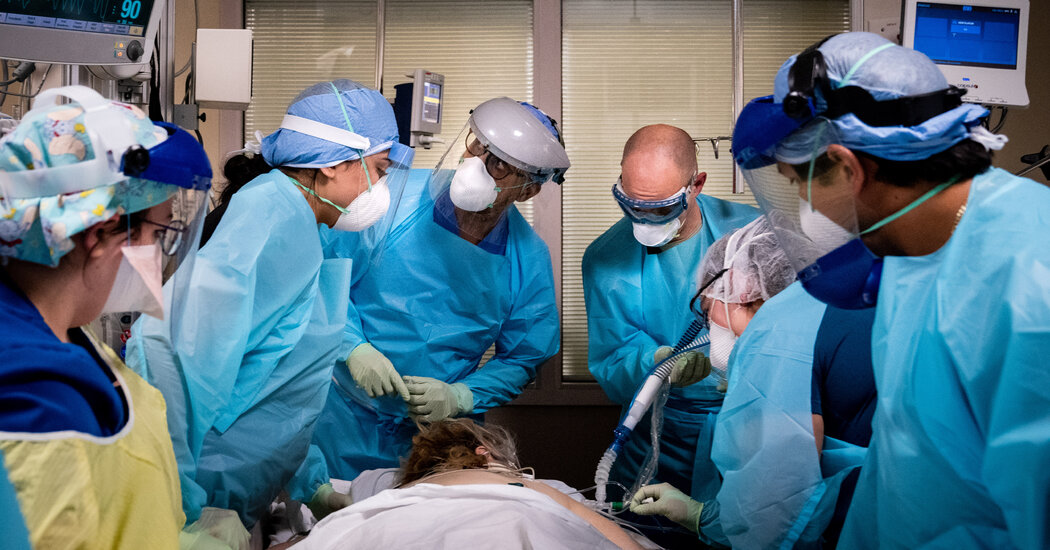
During the Trump administration, OSHA adopted a policy of largely limiting Covid-related inspections to a small number of high-risk industries like health care and emergency response. It did not include meatpacking — which studies indicated was a major source of virus transmission — in this high-risk group.
Some worker groups gave OSHA credit under President Donald J. Trump for enforcing safety rules in the health care industry, including proposed penalties of over $1 million for violations at dozens of health care facilities and nursing homes. But critics accused the agency of largely failing to fine meat processors for lax safety standards, such as failure to adequately distance workers.
Mr. Walsh indicated that the risks to most workers outside health care had eased as cases had fallen and vaccination rates had risen. He also indicated that guidance by the Centers for Disease Control and Prevention last month advising those who have been vaccinated that they generally need not wear a mask indoors played a role in OSHA’s decision to forgo a broader Covid-19 standard.
“OSHA has tailored the rule that reflects the reality on the ground, the success of the vaccine efforts, plus the latest guidance from C.D.C. and the changing nature of pandemic,” Mr. Walsh said on the call.
David Michaels, a head of OSHA during the Obama administration, said the C.D.C. guidance had made a broader OSHA rule more difficult to enact. “To justify an emergency standard, OSHA has to show there’s a grave danger,” Dr. Michaels said. “For that to happen, the C.D.C. would have needed to clarify its recommendation and say that for many workers, there remains a grave danger.”
Without such clarification, said Dr. Michaels, now a professor at the George Washington University School of Public Health, employer groups would probably have challenged any new OSHA rule in court, arguing that the C.D.C. guidance indicated that a rule was unnecessary.
Dr. Michaels said that the new standard was an overdue step but that it was disappointing that no Covid-specific standard was issued for industries like meatpacking, corrections and retail. “If exposure is not controlled in these workplaces, they will continue to be important drivers of infections,” he said.
